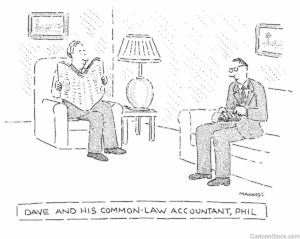Is Sex Therapy Tax Deductible?
The Medical Deductions Quiz
I get asked this a lot.
Actually, yes — as long it is doctor-prescribed. (The lodging is on your own.)
Clarinet lessons — Deductible “if advised by dentist for treatment of tooth defects”. (But tooth whitening to reverse discoloration — nope, this is cosmetic.)
Wigs — Yes, “if doctor has advised as essential to mental health of person who lost all hair from disease.”
Marijuana — prescribed by a physician in a state where it is legal. Not yet, folks — federal law prevails.
Air Conditioner — if you are unlucky enough to suffer from allergies or other breathing impairments like asthma, you may be able to deduct this.
Liposuction — Nope.
There is a common theme here — if a normally non-medical purchase or service is physician prescribed, you may be able to deduct it. If it is solely cosmetic and elective, not **. And of course there are odd ones that make it in, usually by a tax-court challenge. For instance, Navajo healing ceremonies do qualify. So book that trip to New Mexico.
And what may be considered a cosmetic procedure could qualify if it is deemed necessary for your business — do you have a nose job planned.? If you are a singer and your septum is screwing up your high notes, you might be in the range. Breast implants for exotic dancers have been allowed.
Now before you start tallying your receipts for those dancing lessons that help your arthritis, take note of the biggest obstacle to deducting any medical expenses: You may only deduct them to the extent they exceed 10% *** of your “adjusted gross income.” And even if you hit that mark, they only count if you “itemize your deductions” — so most renters, for instance, would not qualify.
If you want to take my full medical deductions quiz, including a question on “Jewish zings”, click here:
For more information, contact your accountant (or maybe your physician!).
** Exception for disfigurements due to accidents, congenital abnormalities etc.
*** 7.5% threshold still applies if you were 65 or over at end of last year.
NOTE: Federal and state tax laws are subject to change. This article is presented exclusively for informational purposes and is not intended to substitute for obtaining tax or financial advice from a tax or other business professional.






